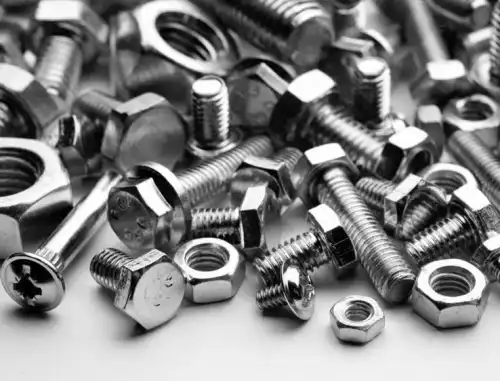Entering the 21st century, Titanium alloy materials for aerospace fasteners have shown a broader development prospect and high-level or ultra-high-level aerospace activities have become more frequent. Its role will far exceed the field of science and technology itself and will have a wider and more profound impact on politics, economy, military, and even human social life.
It should be pointed out that the great achievements made in the aerospace industry are inseparable from the development and breakthroughs of aerospace material technology, and titanium alloys have an irreplaceable position in the aviation field due to their high strength and light surface quality.
Titanium alloy materials for aerospace fasteners are one of the most commonly used titanium alloy products in aerospace. This type of fastener generally requires solid solution aging heat treatment to ensure that it meets the shear strength of 660MPa and the tensile strength of 1100MPa. During manufacturing, titanium alloy fasteners must undergo detailed inspections, including appearance, mechanical properties, and metallurgy, to ensure that they meet strict material standards, quality, and performance requirements.

The processing technical conditions of titanium alloy fasteners must meet the relevant requirements outlined in the AMS4967 standard (wire, annealed, forged, ring parts, heat-treatable titanium alloy bars). This standard has clear requirements and performance requirements in terms of material tolerance, size, metallography, appearance, defect control, and mechanical properties.
However, there are also some problems in the processing of titanium alloy fasteners, such as corrosion, turning, and precision problems. During the installation process, titanium alloy fasteners are prone to form gaps, causing the surface coating to flow in, thus affecting their tightness and corrosion resistance. In addition, the thermal conductivity of titanium alloy materials is poor, and the heat generated during the processing is easily concentrated in the cutting area, resulting in tool failure and workpiece deformation. Therefore, in the processing process, it is necessary to use a blade with a positive angle geometry, keep the blade edge sharp, and use high-pressure and high-flow cutting fluid to ensure the stability of the processing process and the accuracy of the workpiece.
In the aviation field, Titanium alloy materials for aerospace fasteners are widely used. According to data, each domestic C919 aircraft in my country requires about 200,000 titanium alloy fasteners, and 20 million titanium alloy fasteners are needed to complete the first 100 launch orders. With the rapid development of the aerospace industry, the demand for aviation fasteners has increased sharply, and the market prospects of titanium alloy fasteners are very promising.
The application of titanium alloy fasteners in the aerospace field is not only due to their high strength and lightweight but also because they can meet the requirements of continuous and safe flight of aerospace equipment. In particular, commercial aircraft need to fly continuously for more than ten hours a day, and the requirements for fasteners are even higher than the aerospace standards. Titanium alloy fasteners can greatly reduce the weight of the aircraft itself, improve aircraft performance, and reduce the cost of use, so they have become an indispensable core material in the aerospace field.
In summary, Titanium alloy materials for aerospace fasteners play a vital role in the aerospace industry. With the continuous development of the aerospace industry, the application prospects of titanium alloys will be broader.











